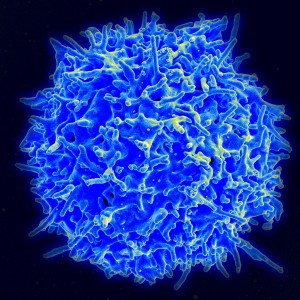 Recently I learned that 60-70% of our immune system resides in our gut, or digestive tract, which is also known as gut associated lymphoid tissue (GALT). It should come as no surprise then that our health integrity, or immune responsiveness, could be associated with what we eat, digest, and assimilate. Many of us find that we are intolerant of gluten (wheat, barley, oats, rye, spelt) and/or of dairy. We eat these foods and we pay a price; we may feel achy, tired, sluggish, brain fog, joint pain. What is happening, of course, is that our immune system (G.I. tract) is reacting much like it would in an allergic response. First to the foods we are eating and then to our own digestive tissues. In a way, we become intolerant to our own tissues and develop auto-immune types of reactions. Recently, we have seen a huge increase the diagnoses of chronic fatigue, multiple sclerosis, Chrons Disease, irritable bowel syndrome, and today, I will add periodontal disease.
Recently I learned that 60-70% of our immune system resides in our gut, or digestive tract, which is also known as gut associated lymphoid tissue (GALT). It should come as no surprise then that our health integrity, or immune responsiveness, could be associated with what we eat, digest, and assimilate. Many of us find that we are intolerant of gluten (wheat, barley, oats, rye, spelt) and/or of dairy. We eat these foods and we pay a price; we may feel achy, tired, sluggish, brain fog, joint pain. What is happening, of course, is that our immune system (G.I. tract) is reacting much like it would in an allergic response. First to the foods we are eating and then to our own digestive tissues. In a way, we become intolerant to our own tissues and develop auto-immune types of reactions. Recently, we have seen a huge increase the diagnoses of chronic fatigue, multiple sclerosis, Chrons Disease, irritable bowel syndrome, and today, I will add periodontal disease.
We must look at our periodontal tissues, the tissues of our mouth, and our tongue as a reflection of the inside linings of our stomach, small and large intestine. Practitioners of Chinese medicine actually read the tongue and offers advice based on its shape, size, moisture, color, ridges, fissures and their locations. The tip of the tongue reflects the lungs and heart. Changes, like red dots at the tip, reflect anxiety, worry and stress. The center of the tongue reflects stomach and spleen. Cracking here represents stomach weakness and in naturopathic circles might be interpreted as shortage of hydrochloric acid, causing stomach upset like acid reflux and heartburn.
Periodontal disease is characterized by bleeding, swelling, redness in the gums. Our own tissue is being attacked by our own immune system; characteristics of auto-immune diseases. I believe that in order to control periodontal disease we must take care of our immune system. As I’ve said before, one person gets gum disease with very little plaque (the bacterial offending agent) while another is fairly resistant even in a mouth full of offending bacteria (poor oral hygiene). The difference must lie in a difference in host responsiveness, reactivity of the individual, and an immune system on hyper-alert – one able to attack its own tissues. Therefore, not only must an affected person reduce bacterial invasion – step up their oral hygiene effectiveness – but commit to strengthening their immune system.
How?
Examine what we eat and drink. Eat healthy, local, in season. Eat healthy animal protein if we are willing. Eat protein at every meal. Eat vegetables of all colors, they offer important anti-oxidants and fiber to keep our systems clean. Don’t eat late into the evening. Drink enough healthy water throughout the day (your weight in pounds divided by two equals the number of ounces per day). Don’t drink soda. Don’t ingest aspartame (NutriSweet). Limit sugar, caffeine, alcohol, gluten, dairy. Examining also means to be aware of how we feel after we eat certain foods. It may be that certain supplements would be well advised to deal with many of our modern world realities (toxins, lack of minerals in the soil, etc). Examining may also mean that for some of us, it might be advised to explore possible physiological imbalances like minerals, pH, metal toxicity, yeast and other infection to best be able to course correct our systems.
Exercise. Move our bodies every day. Sedentary living creates stagnated digestion. Yoga stresses inversions. That is, turning upside down allows the digestive system to turn upside down, shake it up a bit, even bending over touching our toes or over the couch armrest will “upset” this stagnation. Rebounding on a small trampoline exercise our lymph drainage and can clear the toxins (think food as well) from our systems.
Quiet. Find times in life that allow us to take a break from the running around that characterizes our lives. Stress kills, yes, but stress is life. We must learn to recognize, accept, and let go. This could take the form of meditation, prayer, journaling, Sabbath, napping, walking, loving. Find out what your own answer to this peaceful place is and commit to practice it.
Relationships. We cannot live our lives in solitude. Share our concerns with others. Find support amongst friends, professionals, clergy, or even family. Love others by meeting them where they are and in that way love ourselves by accepting where we are today.
It may seem like I have wandered far from the original topic of gut health, but I believe that only with a coordinated and integrated health approach, can we truly be healthy. The combination of mental, emotional, physical, environmental health is the best way to enjoy a full and resilient life.


